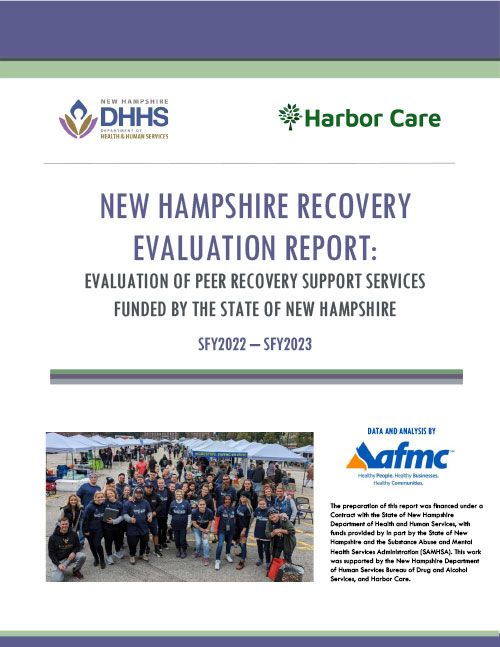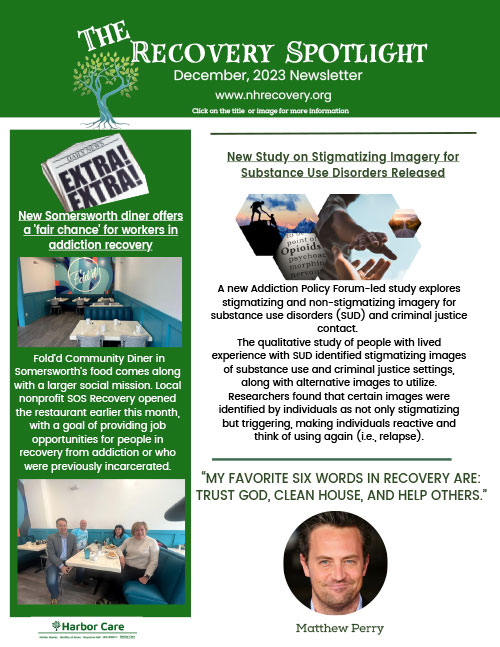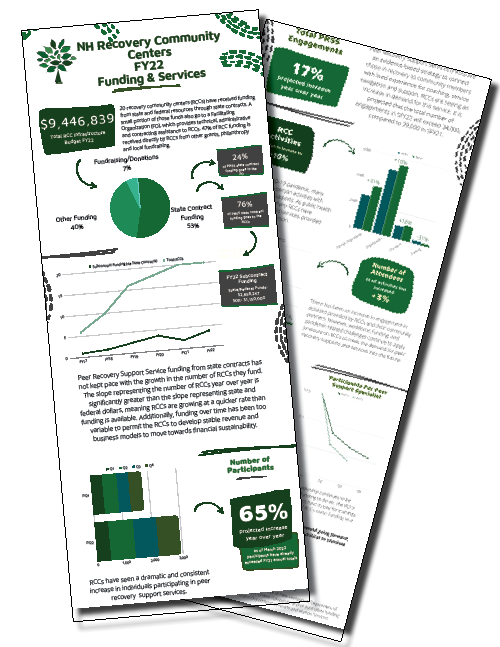Publications
Best Practice Documents

New Hampshire Recovery Evaluation Report
This document, created by AFMC, details the evaluation of recovery outcomes and the impact of Peer Recovery Support Services (PRSS) in New Hampshire. It highlights the association between increased recovery capital and engagement in PRSS, such as attending meetings and advocacy activities. The report emphasizes the importance of family engagement and physical activities in improving recovery outcomes, showcasing significant statistical analyses and recommendations for enhancing recovery support services across the state.
Summary Reports
An initial evaluation of state-funded peer recovery support services (PRSS) was conducted using data from SFY2021. Results from those analyses served as a baseline for future evaluations and indicated that PRSS and other activities facilitated by the RCOs were effective in increasing recovery capital.
 An initial evaluation of state-funded peer recovery support services (PRSS) was conducted using data from SFY2021. Results from those analyses served as a baseline for future evaluations and indicated that PRSS and other activities facilitated by the RCOs were effective in increasing recovery capital.
An initial evaluation of state-funded peer recovery support services (PRSS) was conducted using data from SFY2021. Results from those analyses served as a baseline for future evaluations and indicated that PRSS and other activities facilitated by the RCOs were effective in increasing recovery capital.
 An initial evaluation of state-funded peer recovery support services (PRSS) was conducted using data from SFY2021. Results from those analyses served as a baseline for future evaluations and indicated that PRSS and other activities facilitated by the RCOs were effective in increasing recovery capital.
An initial evaluation of state-funded peer recovery support services (PRSS) was conducted using data from SFY2021. Results from those analyses served as a baseline for future evaluations and indicated that PRSS and other activities facilitated by the RCOs were effective in increasing recovery capital.
 An initial evaluation of state-funded peer recovery support services (PRSS) was conducted using data from SFY2021. Results from those analyses served as a baseline for future evaluations and indicated that PRSS and other activities facilitated by the RCOs were effective in increasing recovery capital.
An initial evaluation of state-funded peer recovery support services (PRSS) was conducted using data from SFY2021. Results from those analyses served as a baseline for future evaluations and indicated that PRSS and other activities facilitated by the RCOs were effective in increasing recovery capital.

Care at the Crossroads: A Financial Stress Test of the New Hampshire Substance Use Disorder Delivery System
The publication evaluates New Hampshire's recovery efforts from 2022 to 2023, focusing on the state's use of federal and state resources to combat alcohol and drug misuse through a continuum of services. It highlights the impact of the Substance Abuse Block Grant and other initiatives in enhancing recovery support services, with a notable increase in recovery capital among participants engaged in various recovery activities.

Stabilizing and Expanding Recovery Community Supports in NH
Prepared by Third Horizon Strategies for Harbor Care, Inc., the report evaluates New Hampshire's recovery support services and offers recommendations. Recovery Community Centers (RCCs) are pivotal, providing peer-led services like housing, education, and employment support. The Facilitating Organization (FO) streamlines RCC support, and Peer Recovery Support Services (PRSS) include crucial elements like Peer Recovery Coaching.
While NH has invested significantly in expanding recovery infrastructure, the report highlights challenges such as workforce shortages, financial constraints, and limited housing options. Recommendations stress revisiting funding levels, maximizing Medicaid reimbursement, and maintaining the FO structure. Addressing workforce issues, closing housing gaps, and expanding recovery-friendly workplace initiatives are crucial for sustaining and expanding NH’s recovery support services amid rising demand and constrained resources.
Given the demonstrated demand for services, stabilizing funding for RCCs and their infrastructure is crucial.
The report emphasizes the need for increased and stable funding to address workforce challenges and meet growing demands for peer recovery support services.
This comprehensive summary highlights the financial, operational, and staffing challenges faced by RCCs, emphasizing the importance of sustained funding and support to continue providing essential services.
Annual Reports

2023 Annual Report
The Facilitating Organization (FO) oversees 12 Recovery Community Organizations (RCOs), subcontracting with a total of 19 open Recovery Community Centers (RCCs) to provide Peer Recovery Support Services (PRSS). The FO ensures compliance by monitoring subcontractors through regular meetings, supports operational and programmatic needs, and collaborates to meet NH RCO Standards of Excellence, Medicaid enrollment, and capacity building. Additionally, the FO facilitates training, Community of Practice events, and monthly RCO leadership meetings, actively promoting the availability and value of PRSS across New Hampshire.

2021 Annual Report
The Facilitating Organization (FO), under SORII funding, continued to subcontract with seven RCOs for Parenting Journey in Recovery, expanding partnerships with Addiction Recovery Coalition of NH and Capital Area RCO. They maintain the NH Recovery Hub, conduct quarterly Community of Practice trainings, and actively participate in various meetings, including LADC Board and Governor’s Commission on Alcohol and Other Drug. Harbor Care achieved eight CAPRSS accreditations, facilitated extensive RCO trainings, implemented a new training software, MedTrainer, and successfully transitioned all RCOs to the new data platform, RecoveryLink, while supporting Medicaid applications and billing procedures, resulting in reimbursements of $327,575.23.

2020 Annual Report
The Facilitating Organization (FO), continues to subcontract with six RCOs for Parenting Journey in Recovery through the PRSS Parenting Education contract. The FO expanded its network by subcontracting with five new RCCs, maintaining information on NHRecoveryhub.org, and conducting quarterly Community of Practice trainings. Accomplishments include releasing quarterly e-newsletters, achieving CAPRSS accreditation for seven centers, expanding staff, providing comprehensive training and technical assistance, engaging in various activities, renewing AmeriCorps contracts, supporting RCOs in Medicaid applications, and implementing a transition plan for data entry to Recovery Link.

2019 Annual Report
The Facilitating Organization (FO) expanded the Sober Parenting Journey grant to include six subcontractors and subcontracted with two new RCOs, MWV Supports Recovery in Ossipee and The Center for Recovery Resources in Claremont. The FO, in partnership with BDAS, continued to maintain NHRecoveryhub.org and released an e-newsletter named the Recovery Fix. With three centers achieving CAPRSS accreditation and procedures finalized for RCOs to utilize the Recovery Data Platform, the FO expanded its staff, coordinated 39 RCO trainings, engaged in 206 activities, conducted 74 site visits, and secured contracts for tele-PRSS delivery and AmeriCorps service. Additionally, the FO supported RCOs in Medicaid applications, provided tours to NH Healthy Families, and identified up to four RCOs interested in joining the FO.

2018 Annual Report
The Facilitating Organization (FO) achieved significant milestones, securing a grant for the Sober Parenting Journey and adding staff to three Recovery Community Organizations (RCOs). Collaborating with partners, the FO developed NHRecoveryhub.org, while also coordinating 14 RCO trainings, totaling 41 hours, with 159 participants. Additionally, the FO played a pivotal role in supporting RCOs through back-office services, obtaining CAPRSS accreditation for the first RCO, and initiating collaborations with the Department of Justice and AmeriCorps Vista Volunteers to enhance PRSS delivery and support rural/remote areas.

FO Quarterly Report (April-June 2022)
The Facilitating Organization (FO) currently partners with 19 Recovery Community Centers (RCCs) in 12 Public Health Regions. They provide various back-office supports, including HR, finance, Medicaid credentialing, IT, and grant writing to subcontractors. The FO is actively engaged in training, promotion, and community outreach, including facilitating Crisis Prevention Intervention, developing digital curriculum for Nurturing Families, attending conferences, and participating in various committees and leadership meetings.

FO Quarterly Report (July-September 2023)
Harbor Care, Inc., serving as the Facilitating Organization (FO), oversees 12 Recovery Community Organizations (RCOs) in New Hampshire, providing Peer Recovery Support Services (PRSS) for individuals with Substance Use Disorder (SUD) and their families. The FO ensures operational and programmatic support, compliance monitoring, and quality PRSS provision, working towards goals such as meeting NH RCO Standards of Excellence, Medicaid enrollment, and capacity building. Accomplishments include subcontracting with 19 Recovery Community Centers, conducting PRSS Community of Practice events, offering back-office supports, facilitating trainings, maintaining social media presence, and actively participating in various committees and leadership meetings.
Newsletters

December 2022 Recovery Spotlight
December's Recovery Spotlight newsletter covers a groundbreaking Addiction Policy Forum-led study on the impact of stigmatizing imagery for individuals with substance use disorders (SUD). Somersworth's Fold’d Community Diner, initiated by SOS Recovery, is making a difference by providing job opportunities for those in addiction recovery or with incarceration history. In Washington, Senators Padilla and Markey introduced the Homelessness and Behavioral Health Care Coordination Act to improve services for individuals facing homelessness and behavioral health challenges, including substance use disorders. The National Overdose Response Line is highlighted, offering a non-judgmental connection. Additionally, the newsletter provides six essential tips for maintaining sobriety during the challenging holiday season.


